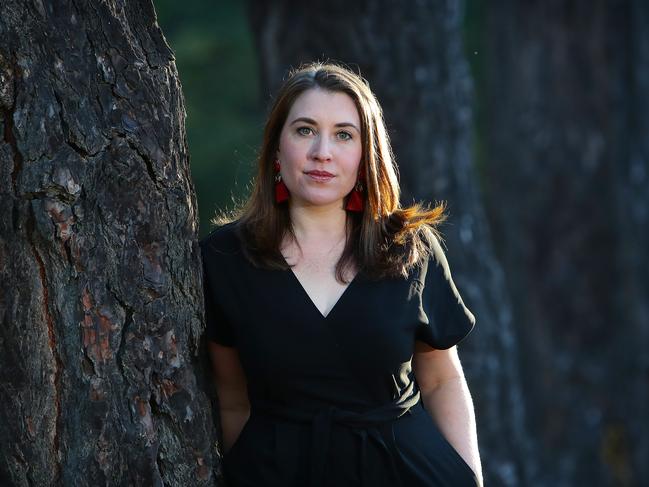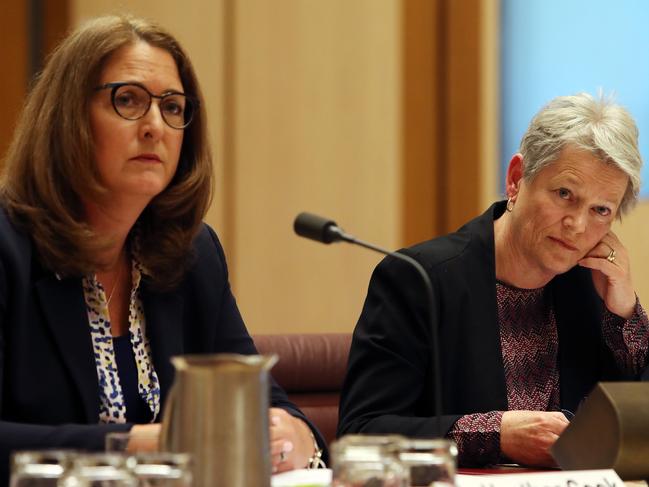Press Freedom: Australian laws block public’s right to know and fall short of international standards
Australia’s laws do not protect the public’s right to know and are making the country ‘stand out for the wrong reason,’ an inquiry heard today.
National
Don't miss out on the headlines from National. Followed categories will be added to My News.
Australian laws protecting the public’s right to know fall well short of international standards, are “chilling” investigative reports, and are making Australia stand “out for the wrong reasons” on the world stage, legal experts told a federal inquiry today.
The Senate Press Freedom Inquiry heard calls for changes to whistleblower protections, a public interest defence for people accused of exposing sensitive information, and reform to warrants issued to media organisations.
But many of the calls were rejected by Australia’s security agencies, which argued they could introduce “vulnerabilities” into our legal system, even though they had been successfully used overseas in countries including New Zealand and the United Kingdom.
The inquiry follows Australian Federal Police raids on the ABC’s Sydney office and the home of News Corp journalist Annika Smethurst in June, which were condemned worldwide.
Richard Branson backs Australia’s Right to Know

International human rights lawyer Caoilfhionn Gallagher told the inquiry’s second public hearing that Australia’s lack of protection for public interest journalism had meant that the country was “standing out for the wrong reasons” and raised concerns that laws did not meet international standards.
“We’re very concerned (Australia’s) disclosure offences do not meet the international requirements on freedom of expression,” Ms Gallagher said.
“We think they constitute disproportionate interference with the right to freedom of expression.
“The fact they are on the books in this way is likely not only to have an impact in cases where they’re used but also on cases where journalists are simply aware of their existence. The chilling effect is critical.”
Australian Law Council president Arthur Moses also told the inquiry action was urgently needed to introduce a public interest test in any criminal prosecution of journalists, with the burden of proof placed on prosecutors, powerful and more “consistent” whistleblower protections, and contestable warrants.
Mr Moses also said the Australian Attorney-General’s “kneejerk” reaction to place himself as a “gatekeeper” who would decide whether the Government would prosecute journalists was ill-considered and “creates if not a real conflict certainly an appearance of conflict”.
“What this does is place the Attorney-General in harm’s way in respect of suggestions that may be made against him,” he said.
But some Federal Government officials outright rejected suggestions to change the laws, including ASIO intelligence service delivery deputy director-general Heather Cook who told Senators that protecting journalists could give rise to more foreign spies.
“Journalism can provide an ideal cover for foreign intelligence actors seeking to hide their actions from our intelligence and law enforcement agencies,” she said.
MORE NEWS:
Batty: Spicer should stop blaming others
Cyber hack prompts university overhaul
Leonardo DiCaprio concerned for Aussie wildlife in fires

Ms Cook also questioned whether any legal changes to prevent media raids and prosecutions would see “approaches made by foreign intelligence actors to Australian journalists” or whether Australians could trust journalists would not spy on the country’s officials.
She also warned that public interest reporting of sensitive information could cause “significant harm” to national interests but, when asked, could not point to a “specific example” where that had occurred in Australia.
But Andrew Walker, from the Attorney-General’s Department integrity and security division, said the Federal Government was considering what he called “sensible reforms” to the public’s right to information in Australia following discussions with media organisations this week, though changes may only come after the Press Freedom Inquiry reports in March next year.
Originally published as Press Freedom: Australian laws block public’s right to know and fall short of international standards


